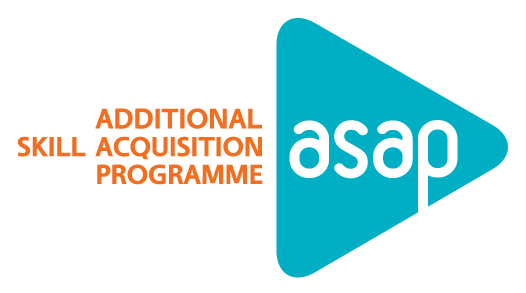Course Overview
Gain industry-valued skills in ‘Anti-Financial Crime Due Diligence’ through a comprehensive, live, and interactive program. Designed to give you the practical expertise needed to conduct due diligence, the program helps you develop your skills in analysis, judgment and effectively articulating outcomes.Build specialized skills in Anti Financial Crime, opening up career paths in finance, fintech, and beyond,while helping to save lives and livelihoods.
View MoreKey Topics
- Regulatory Framework – How do you go from Acts to Regulations to Policy and Procedure
- Inter-governmental bodies and Regulators e.g., FATF, Egmont, FIUs and the role they play
- Types of Banks & Financial Institutions
- Banking – Divisions, Products, Services &
Channels - Three Lines of defense within a bank
- Describe the client lifecycle management (CLM)
process - Link the right due diligence controls to each stage of the CLM process
- What is CDD and EDD
- What is ongoing due diligence
- What is the purpose of ongoing due diligence
(Transaction Monitoring, Screening, Periodic
Reviews and Trigger Based Reviews) - Differences between each of the above and how
they all tie together
- Introduction of case review and explain the
components of case review - Legal Existence: Explain the concept of legal formation, entity address – The concept, the information needed to collect and documents to collect with a case study
- Nature of Business: How to identify the nature of business/activity of the entity, articulate, industry code identification, and categorize into the right entity type. This includes documentation
- Listing Information: Listing information of an entity in the stock exchange
- Countries of Business: The entities and other related parties where they do business, risk associated with that
- Financial Information: How to analyze basic financials of the entity and interpret it with relevant documentation
- Documentation: Identify, analyze, interpret, and record documents like annual reports involved in the above steps
- What is screening?
- Name screening Vs. payments screening
- Screening for PEP, Adverse media, Sanctions
- SoF and SoW in detail & understanding the difference
- Key Controllers and Directors
- Beneficial Ownership and Shareholdings
- Based on the complexity, participants will go through different cases. Trainer will walk them through different case reviews and participants will shadow
- Case review has 3 different stages: Group cases, Practice cases, and Test case
- Group Cases stage: The participants will review the case along with trainer support as a group
- Practice case stage: The participants will review the case individually but with trainer support
- Test Case stage: The participants will complete the case without any help or discussion
- The need for Periodic Reviews and how they work
- Trigger-based reviews, what they are and how they work
- What is the right mental framework when engaging clients to ensure the right client experience?
- Explore how different client outreach processes work.
- How do RFIs (Requests for Information) impact client experience as well as AFC/Sanctions effectiveness?
- How to overcome concerns about tipping off. Things to watch out for.
- Help participants understand and connect with how their role as due diligence professionals can save lives and livelihoods
- Help them better understand how they can apply a risk-based approach to combine an investigative mindset, analysis and good judgment to make the right calls
- Help participants understand why good articulation and documentation are critical to passing the test of reasonableness and how they can use emerging AI capabilities in service of this objective
- Risk-based Vs. test of reasonableness
- Understand and implement the right mindset to view QA feedback as a gift
- Help participants understand why ongoing upskilling is key to achieving effectiveness.
Investment
to secure your future
1 Course Fee
- Special Price: Rs. 53,100 (available only for the first 60 participants).
- the actual price as Rs. 185,260 (including GST).
2 Skill Loan and Installments
Available
3
1st installment : Rs:5100/-
2nd Installment : Rs.48000/-
What to expect after the course
Our programs equip you with AFC due diligence skills that are critical for various firms. Examples include EY, HSBC, DB, Capgemini, eClerx, and Guidehouse.
Job Roles
Expected Salary
Key Recruiters
KYC Analyst
Expected Salary
- 350000 /- p.a.
- 750000 /- p.a.
Key Recruiters
- EY
- HSBC
- DB
- Capgemini
- eClerx
- Guidehouse
Transaction Monitoring Analyst
Expected Salary
- 350000 /- p.a.
- 750000 /- p.a.
Key Recruiters
- EY
- HSBC
- DB
- Capgemini
- eClerx
- Guidehouse
Sanctions Analyst
Expected Salary
- 350000 /- p.a.
- 750000 /- p.a.
Key Recruiters
- EY
- HSBC
- DB
- Capgemini
- eClerx
- Guidehouse
Associate - Enhanced Due Diligence
Expected Salary
- 350000 /- p.a.
- 750000 /- p.a.
Key Recruiters
- EY
- HSBC
- DB
- Capgemini
- eClerx
- Guidehouse
Quality Assurance Analyst
Expected Salary
- 350000 /- p.a.
- 750000 /- p.a.
Key Recruiters
- EY
- HSBC
- DB
- Capgemini
- eClerx
- Guidehouse
Testimonials
Need Assistance?
FAQs
CDDP is short for a Certified Due Diligence Professional and we believe they are critical in the fight against financial crime. You see, we have professionals we rely on in all walks of life including for managing our tax, accounting, legal needs and even to take care of our pets BUT, when it comes to fighting financial crime, for some reason we have never invested in skilled professionals who need to meet certain professional standards. We think this is a serious gap and are seeking to address that with the creation of the CDDP program.
Anti-Financial Crime is the sum total of all of the controls to fight financial crime and includes upskilling. Our upskilling programs focus on helping you acquire the verifiable due diligence skills which are a critical part of anti-financial crime efforts.
All of the key professionals we rely on have verifiable skills i.e., someone has trained and tested them. We place our trust in that process having done its job well and therefore we trust these professionals. The CDDP Program will train
and test your ability to conduct due diligence and this then allows us to make a representation to the industry that you have acquired the skills needed to conduct due diligence i.e., we verify your skills and make this representation to the industry.
The CDDP Program is highly practical, focusing 70% on real-world case studies rather than just theory. Unlike other courses that might focus on general knowledge, CDDP prepares you to handle real-life financial crime cases,
equipping you with verifiable skills that are highly valued by employers.
Please click on the ‘Apply Now’ link on the ASAP page to complete your application form. After reviewing your application, we will invite you for a short interview. Successful candidates will be invited to participate in the CDDP
program following the interview.
The CDDP Program is structured over 12 weeks, with weekend sessions. Each weekend includes two 5-hour sessions, totaling 10 hours per week, and 120 hours of comprehensive training. This schedule ensures participants can balance the program with their professional or personal commitments.
No prior experience is needed to apply for the CDDP Program. The program is designed to train participants from any background, provided they are passionate, communicative, and committed to learning. We’ll conduct a short interview to assess your motivation and fit.
No prerequisites needed to join us. That said, diving into some current financial crime topics and brushing up on basic research skills will set you up for success. Bring your curiosity and a can-do attitude—you’ll be ready to tackle challenges and make the most of this opportunity. Keeping your cameras on will also maximize engagement and help you get the most out of the Program.
Throughout the CDDP Program, you’ll participate in various assessments to solidify your understanding of key concepts and skills, starting with the 70-minute AFC Elements Program, followed by regular knowledge checks. The
final assessment includes multiple-choice questions and practical case reviews, focusing on both your knowledge and ability to apply it. You’ll need to score at least 80% on written assessments and demonstrate 95% accuracy in case reviews. If you don’t pass, feedback will be provided, and you may be eligible for re-assessment with the next batch.
Throughout the CDDP Program, you’ll have access to a trainer for guidance, weekly knowledge checks to track your progress, and feedback sessions. The goal is to ensure you continuously build confidence and expertise in due diligence.
Earning the Certified Due Diligence Professional (CDDP) credential is your gateway to a rewarding and impactful career in the fight against financial crime. In a world where institutions invest over $300 billion annually to combat financial crime, the demand for skilled professionals has never been greater. The CDDP program equips you with verifiable due diligence skills that the industry seeks, ensuring you stand out in a competitive job market. As a CDDP, you also become a part of a global, unique community of skilled professionals. The certification can open doors to roles in banks, financial institutions, and fintech companies. Whether you’re just starting out or looking to specialize, earning the CDDP credential empowers you to make a real difference in a growing field, positioning you as a trusted professional in the fight against financial crime.
Whilst we will do everything in our capacity to assist you in securing a role, no certification guarantees a job. A CDDP certification gives you verifiable skills to secure a role in the always-in-demand anti-financial crime sector. It also prepares you to be effective in your role as a financial crime fighter and save lives.
Yes, the program is structured to accommodate working professionals, with sessions held on weekends over 12 weeks. This schedule allows you to continue working while dedicating time to skill-building that will advance your career.
On successful completion of the Program, you will receive the ‘Certified Due Diligence Professional’ certification in the form of a blockchain based verifiable credential. The certification is provided by Client Fabric Tech with the curriculum for the CDDP certification being overseen by the Curriculum Advisory Group (CAG).
CAG stands for the Curriculum Advisory Group and is a group of leaders from industry, regulators and academia who have been assembled to review and provide guidance on the curriculum being developed. The CAG’s goal is to ensure
that the content is industry relevant and addresses gaps identified. The CAG is chaired by Ray Blake and meets every month.
You can write to us.
“Save lives and livelihoods as a Certified Due Diligence Professional. Open up doors of opportunity globally and into your future.”












